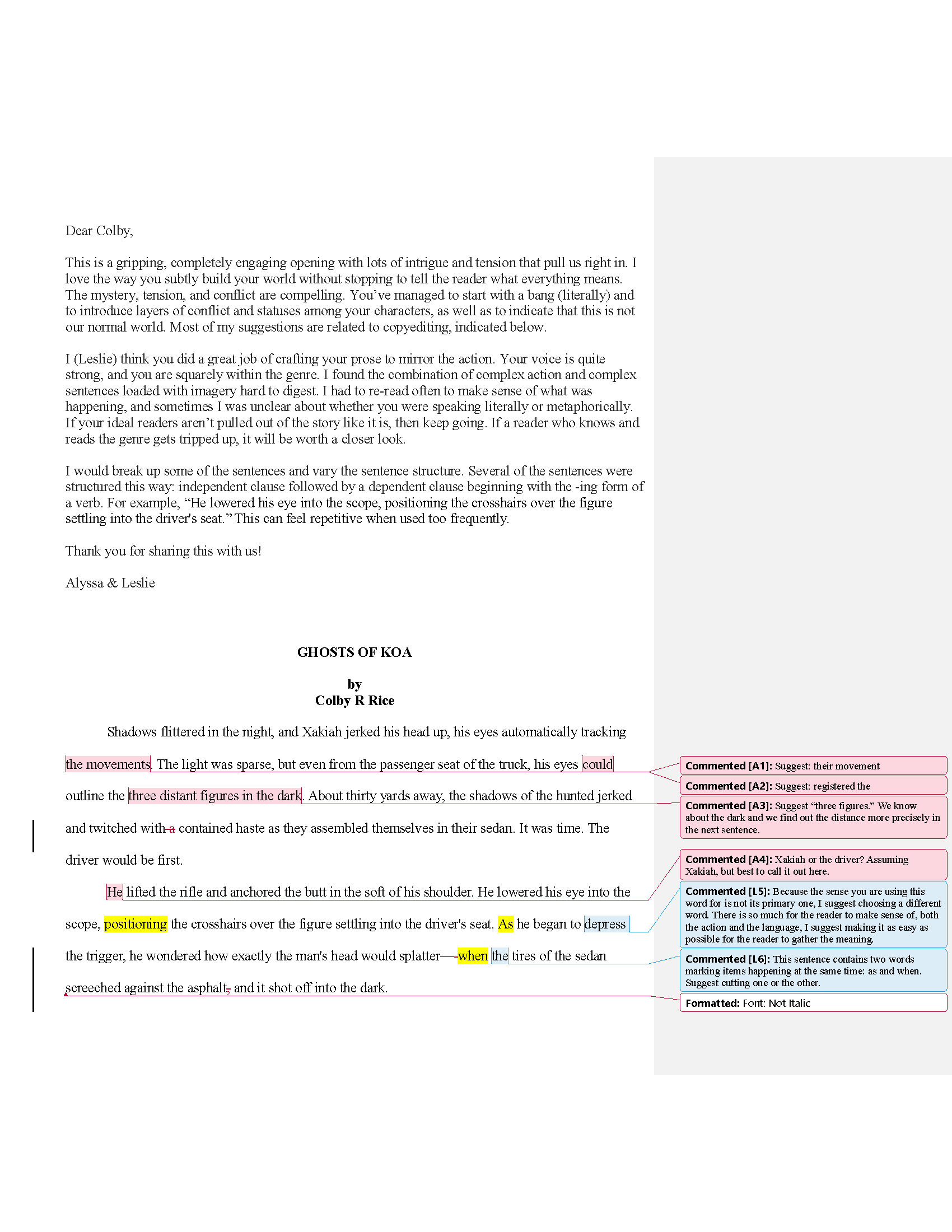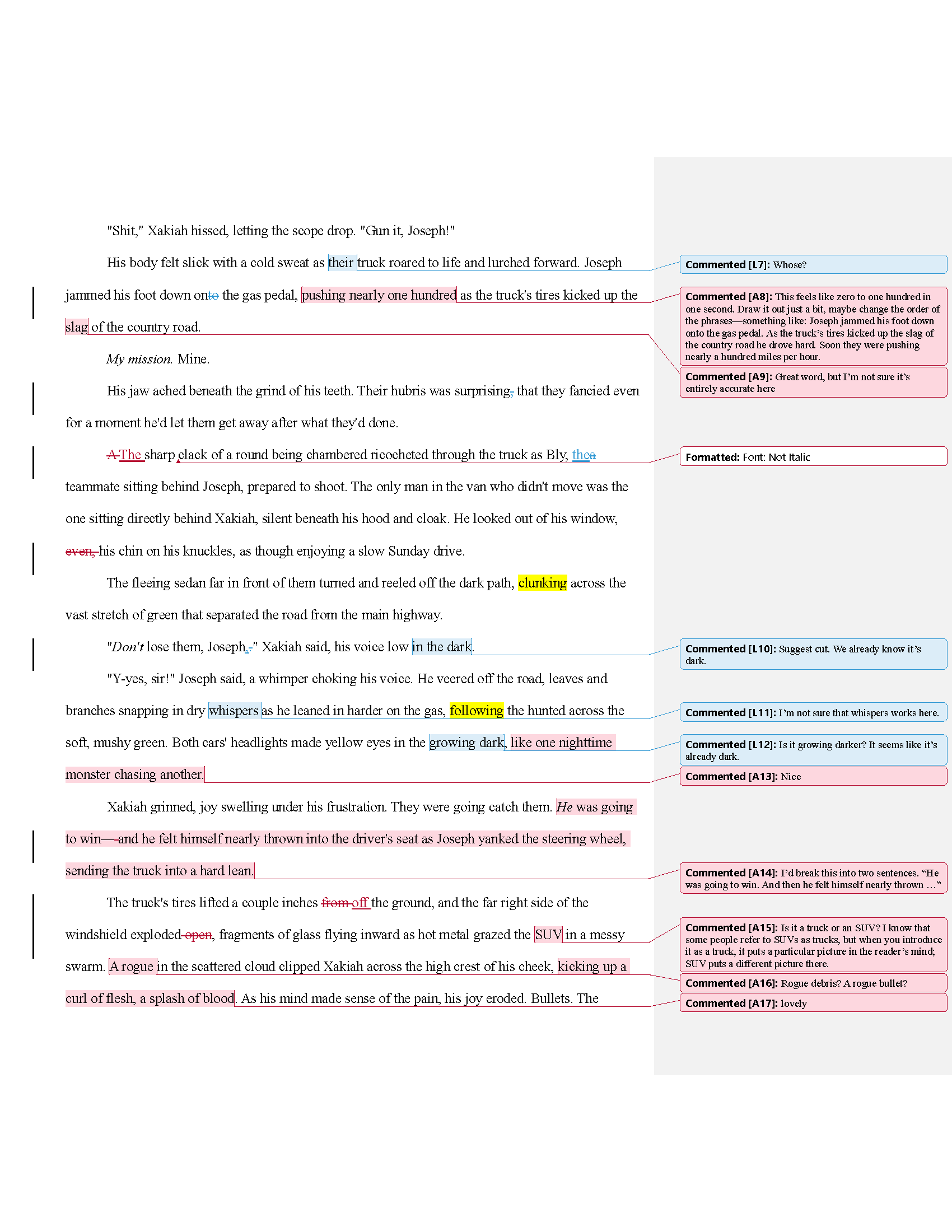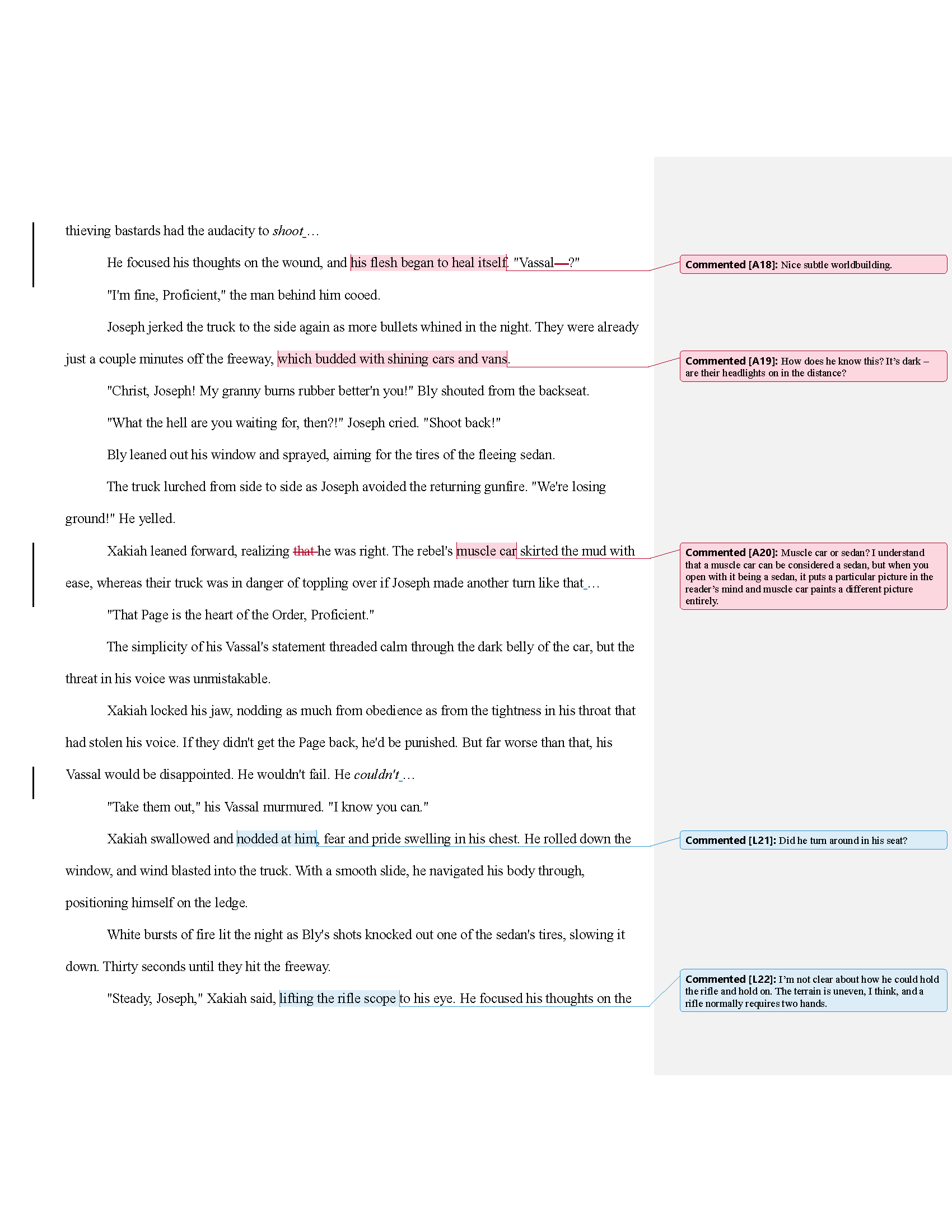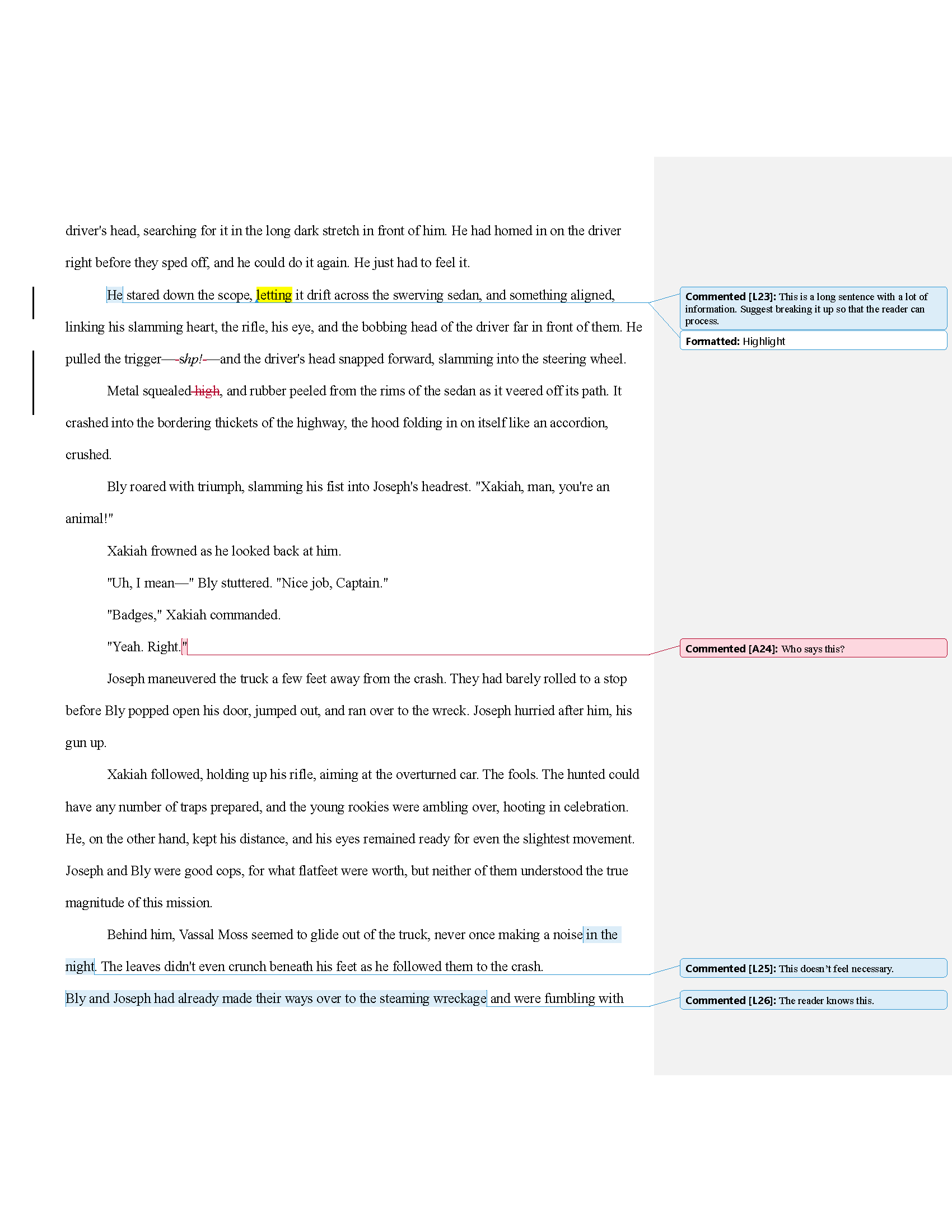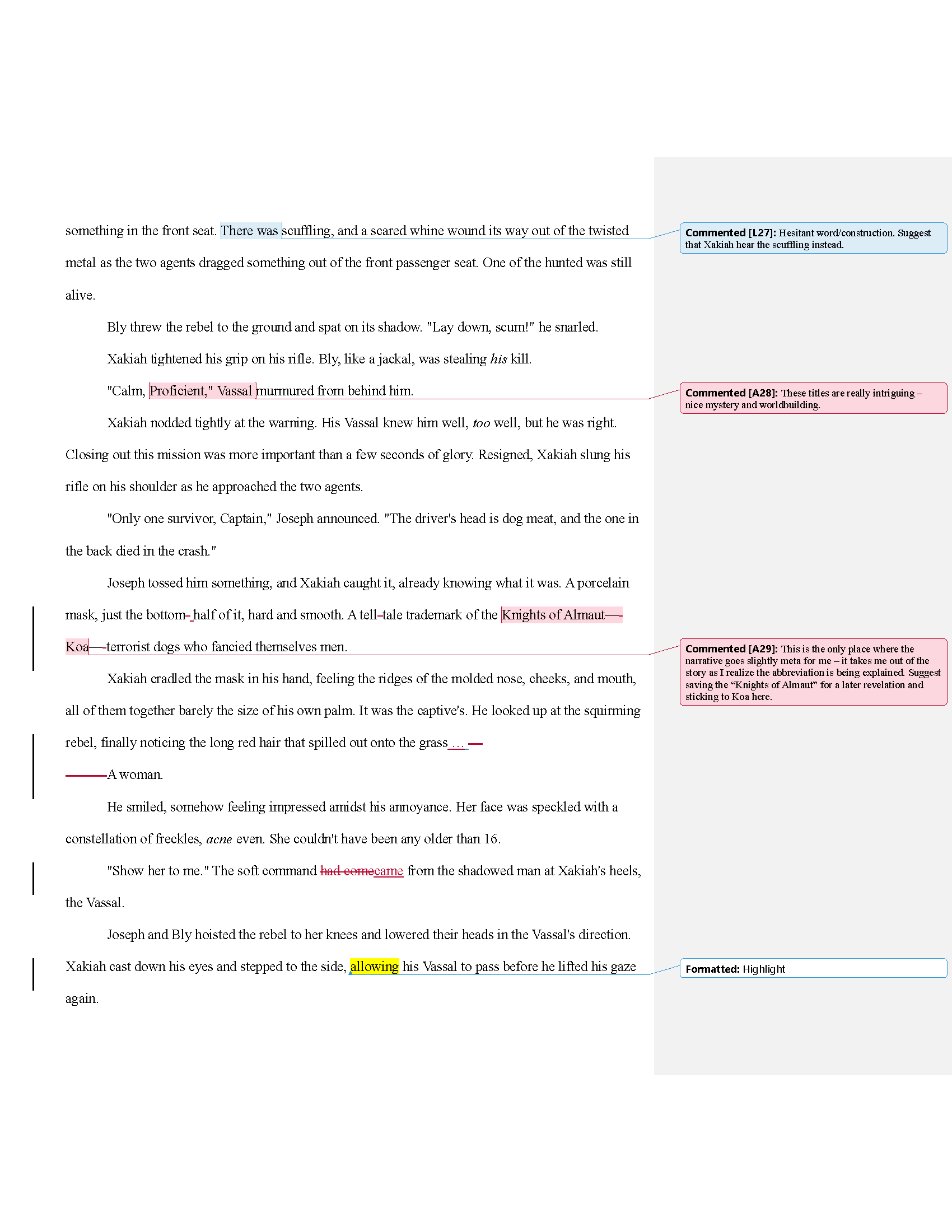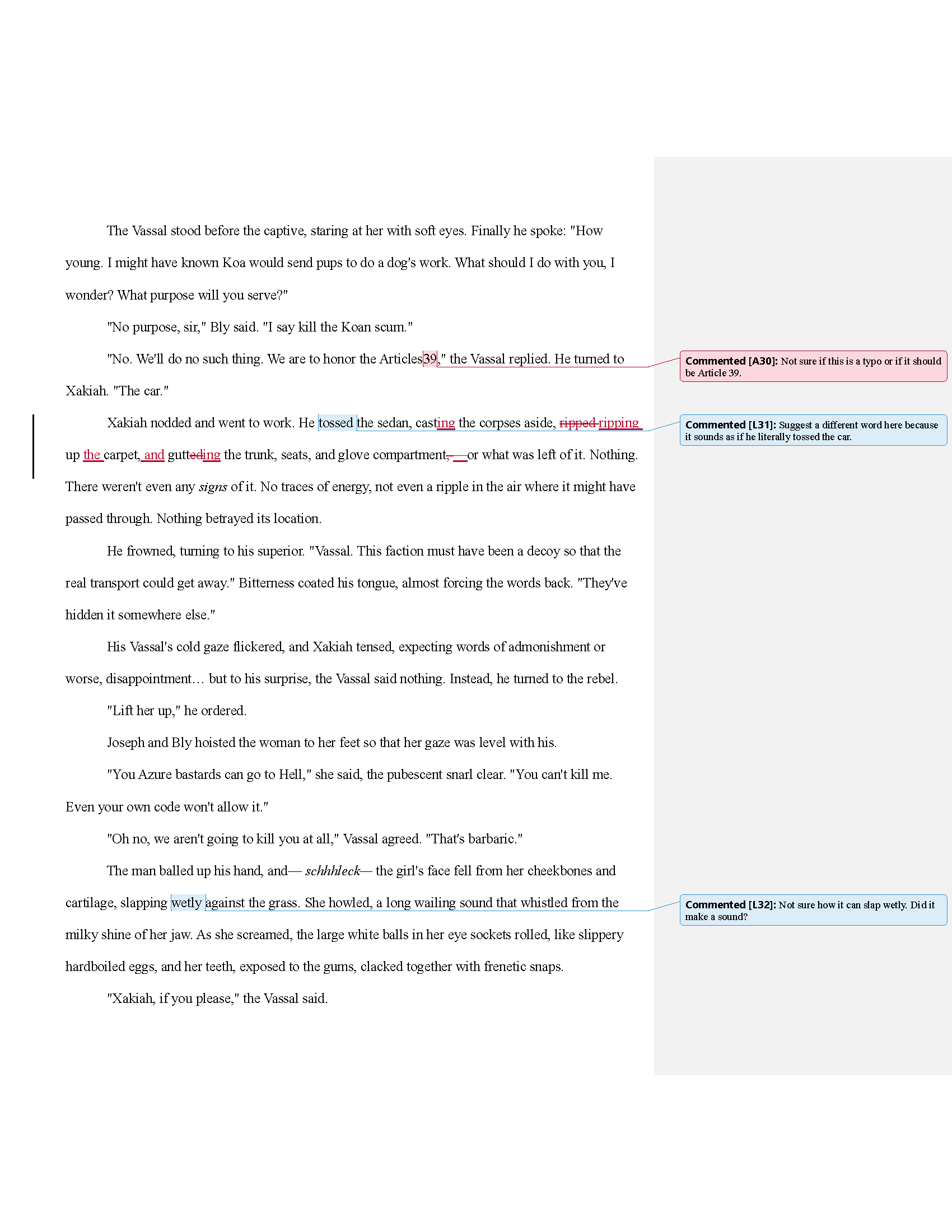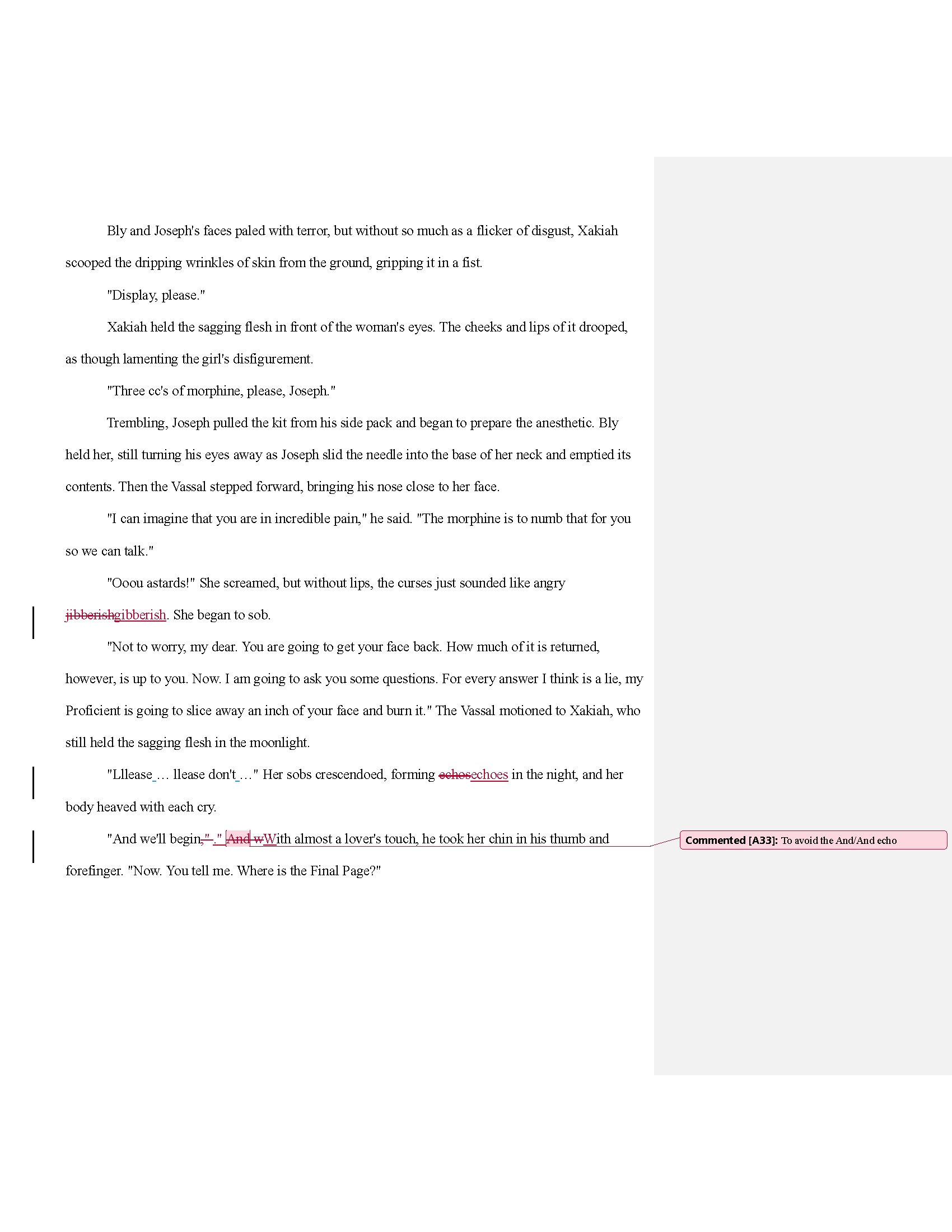Description
Alyssa & Leslie critique the prologue of Colby R. Rice’s Ghosts of Koa. They discuss identifying repetitive syntax, seamless worldbuilding, developing intrigue, and finding beta readers. NSFW
Listen Now
SHOW NOTES
“Writing without revising is the literary equivalent of waltzing gaily out of the house in your underwear.”
Read on
Ghosts of Koa is available on Amazon.
Check out Colby's website.
Beta Readers: What to Look For
Beta readers are important. They represent the first test of your story on a truly fresh audience. They provide the social proof you need to show that your novel is good enough, or the guidance you need to get it there. You’ll want to choose them carefully. While it’s tempting to call in a favor from family and friends, these people may not make for the best beta readers. See if your candidates fit the bill.
Ideal beta readers
Here is a list of qualities to consider in your beta readers:
Are they avid readers?
Are they well-versed in your genre?
Are they excited about the idea of being one of the first people to read your novel?
Do they have the skills and experience to provide you with meaningful feedback?
Do they have the objectivity to give you honest feedback?
Where to find them
It may be that your friends and family yield a few people who will make excellent beta readers. Consider how many beta readers you will need. Will one be enough to validate your estimation of the story? Three? Thirty? The answer is really up to you. We suggest getting at least two beta readers to confirm that your story excels before you quit the cycle of beta read/revision/beta read. Will you submit the novel simultaneously to your beta readers and incorporate all of their feedback at once or will you submit and revise, submit to a new reader and revise, and so on? There is no right or wrong answer here; choose the approach that you think will best serve your novel. As you're starting out, we recommend the latter approach. Seasoned novelists like Patrick Rothfuss are known to put out 50 copies to beta readers simultaneously.
Here are a few places to solicit beta readers:
- Your writing or critique group
- An online critique group
- Writer friends
- A Reddit forum for your genre
- Beta Finder—see below
Beta Finder is a social media forum where authors and beta readers come together. You can check out profiles of readers and directly solicit beta reads from them, or post your story synopsis to garner interest from beta readers.
Ask and You Shall Receive
You don’t want to simply hand over your manuscript and say, “Tell me what you think.” Provide targeted instructions. Think about what’s important to you and what you want to find out.
Here are some of the questions I ask my beta readers:
- Does the beginning hook you? At what point are you really engaged with the story?
- Where do your eyes glaze over or where do you lose interest?
- Mark any sentence you had to read twice or that simply didn't make sense.
- What moments or phrases did you absolutely love?
- Where did the story evoke strong emotion?
- What was your overall impression of the book? How would you describe it to a friend?
- Would you recommend this book to other people? Why or why not?
Feel free to use these lock, stock, and barrel, or adapt them to create your own custom list of instructions for your beta readers.


